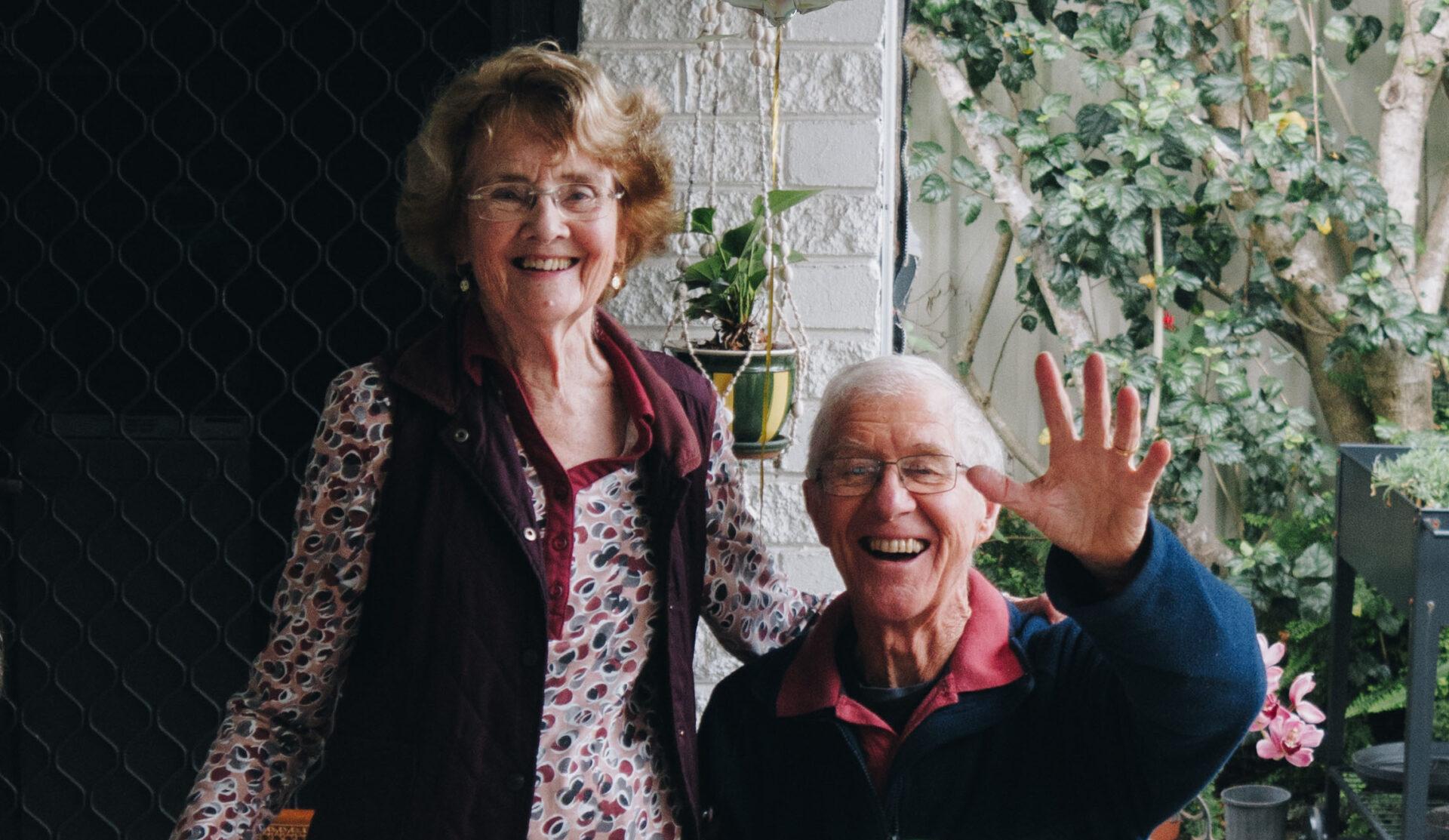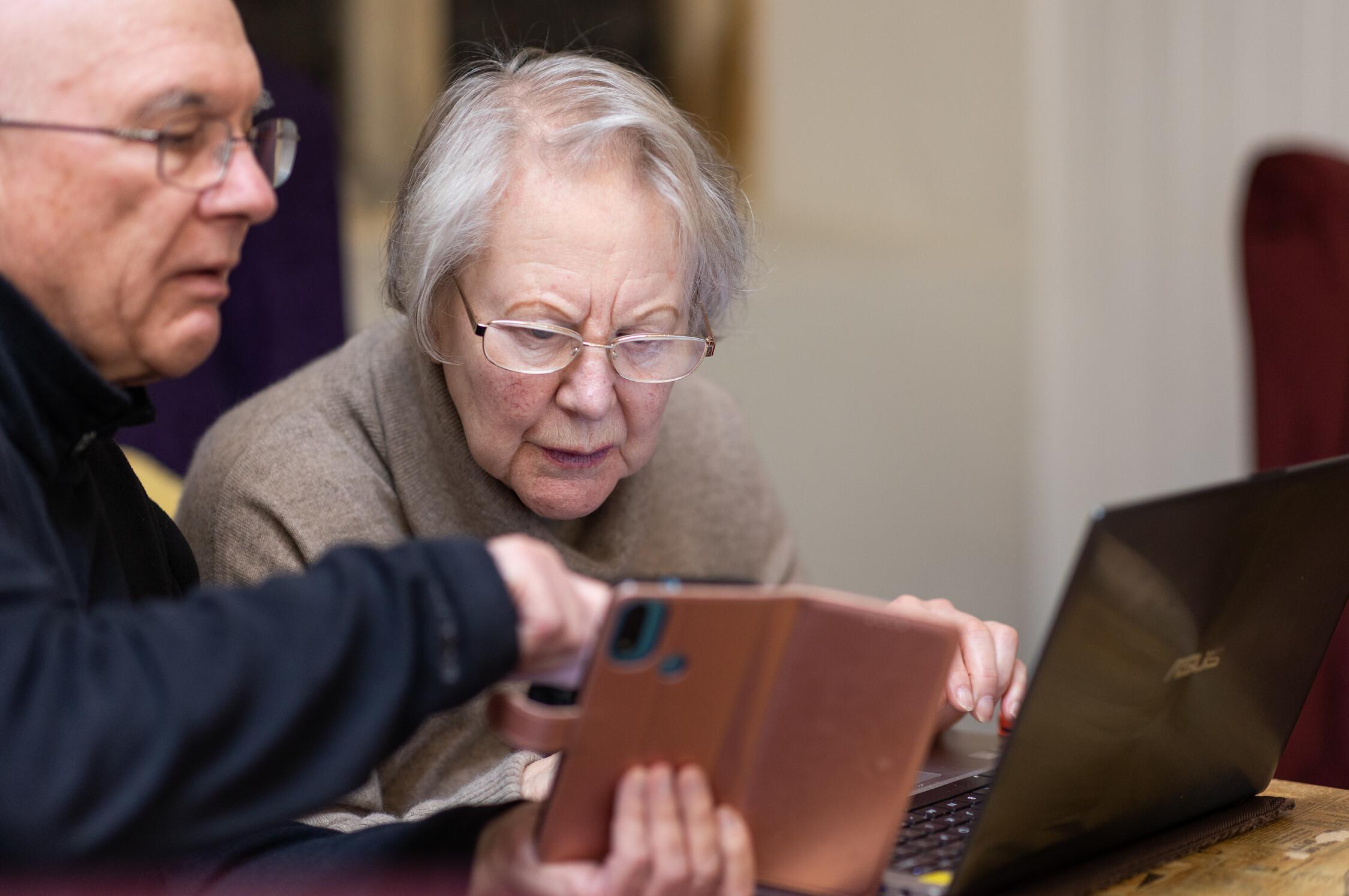Janice and Bernie’s story
Getting the diagnosis helped us to know what we were dealing with.

My name is Janice. My husband, Bernie, had a successful career as a head teacher and school principal. In semi-retirement, he worked at our local university.
But something wasn’t quite right. He came home one evening from work and said, “I’ve just had a complete mental blank…I think I’m going to have to tell them that I can’t do it”.
He was struggling with paperwork and was worried about something happening in front of a room full of students.
Bernie was reluctant to see his GP. He was afraid he might be diagnosed with Alzheimer’s disease like his father. But eventually I convinced him to talk to the GP about his memory problems.
Unfortunately, the initial response was to diagnose and treat ‘sleep aponea’. We went through the next couple of years thinking that was the problem.
We went back to the GP as his memory was still declining and there were emotional upsets and cognition issues. The GP said, “OK we can do nothing or I can refer you to a geriatrician.”
We finally agreed to the referral and I am so glad.
When the geriatrician diagnosed Bernie in 2018, Bernie was initially in shock. He needed time to process the information first and we were both worried about stigma. Bernie was too embarrassed to tell his siblings, but eventually agreed for me to email them. Thankfully, this resulted in their support. Since then, it’s become easier to talk to friends about it.
Dementia Australia provided some good information but telling others and getting their suggestions was most helpful.
A close friend told me about a local support group. It was informative in terms of what others were experiencing and how they dealt with it. Attending the group led to other activities including educational courses and participation in research projects.
We attended a 6-week course run by the Area Health Service. Participants were split into carers and people with dementia, and this helped Bernie to see he wasn’t alone.
Getting the diagnosis helped us to know what we were dealing with.
Knowing Bernie has vascular dementia gave us the opportunity to be proactive about talking with his surgeon and his anesthetist to ensure a good outcome when he had a hip replacement.
Another benefit of the diagnosis came from our financial advisor who suggested I apply for a carer allowance. The other big thing that changed for the positive was registering for My Aged Care. Even though it took a few months to get the initial visit, she was really helpful in saying, “well this is the situation, and this is what we can do to assist.” She also referred me to a carers course.
Sometimes it feels like there are a lot of people telling you what you can’t do as a person living with dementia but it’s important to recognise all the things you can do!
Bernie still enjoys riding his bike, catching up with friends, and going for an occasional ocean swim. We have found ways to support him to keep doing these things. Spending time gardening every day has also been therapeutic and gives him a sense of accomplishment.
For others going down this road, it is important to know that a diagnosis of dementia is not the end of the world. Even though things may and will change, you can live with dementia and still have a productive life.
Watch Janice & Bernie’s digital story below:
For more digital stories, visit the Face Dementia YouTube Channel.


